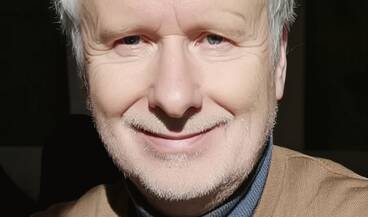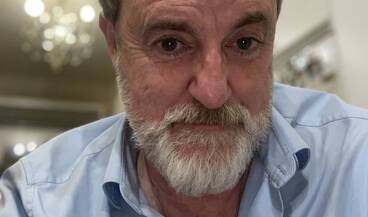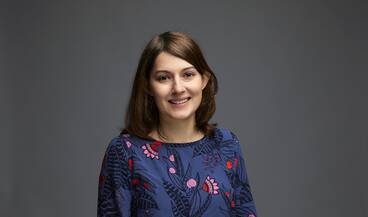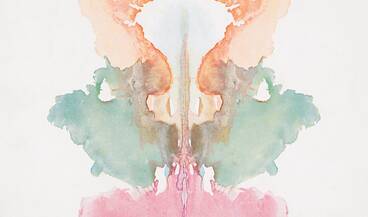Today
10:00 - 17:00
10:00 - 17:00
Tuesday till Wednesday 10:00 - 17:00
Thursday 10:00 - 19:00
Friday till Sunday 10:00 - 17:00
Monday closed
Tuesday till Wednesday and Friday 10:00 - 18:00
Thursday 10:00 - 19:00
Saturday till Monday closed
Good Friday 03.04.2026 10:00 - 17:00
Kars Saturday 04.04.2026 10:00 - 17:00
Easter 05.04.2026 10:00 - 17:00
Easter Monday 06.04.2026 10:00 - 17:00
Sechseläuten 20.04.2026 10:00 - 17:00
Labour Day 01.05.2026 10:00 - 17:00
Ascension Day 14.05.2026 10:00 - 17:00
Whitsun 24.05.2026 10:00 - 17:00
Whit Monday 25.05.2026 10:00 - 17:00
Swiss National Holiday 01.08.2026 10:00 - 17:00
Long Night of the Museums 05.09.2026 10:00 - 17:00
18:00 - 23:59
Long Night of the Museums 06.09.2026 0:00 - 2:00
10:00 - 17:00
Knabenschiessen 14.09.2026 closed
Family Day 18.10.2026 10:00 - 17:00
21.12.2026 10:00 - 17:00
22.12.2026 10:00 - 17:00
23.12.2026 10:00 - 17:00
Christmas Eve 24.12.2026 10:00 - 14:00
Christmas 25.12.2026 10:00 - 17:00
St. Stephen´s Day 26.12.2026 10:00 - 17:00
27.12.2026 10:00 - 17:00
28.12.2026 10:00 - 17:00
29.12.2026 10:00 - 17:00
30.12.2026 10:00 - 17:00
New Year´s Eve 31.12.2026 10:00 - 17:00
New Year´s Day 01.01.2027 10:00 - 17:00
Saint Berchtold 02.01.2027 10:00 - 17:00
accessibility.openinghours.special_opening_hours.link
Show all10:00 - 17:00
Tuesday till Wednesday 10:00 - 17:00
Thursday 10:00 - 19:00
Friday till Sunday 10:00 - 17:00
Monday closed
Tuesday till Wednesday and Friday 10:00 - 18:00
Thursday 10:00 - 19:00
Saturday till Monday closed
Good Friday 03.04.2026 10:00 - 17:00
Kars Saturday 04.04.2026 10:00 - 17:00
Easter 05.04.2026 10:00 - 17:00
Easter Monday 06.04.2026 10:00 - 17:00
Sechseläuten 20.04.2026 10:00 - 17:00
Labour Day 01.05.2026 10:00 - 17:00
Ascension Day 14.05.2026 10:00 - 17:00
Whitsun 24.05.2026 10:00 - 17:00
Whit Monday 25.05.2026 10:00 - 17:00
Swiss National Holiday 01.08.2026 10:00 - 17:00
Long Night of the Museums 05.09.2026 10:00 - 17:00
18:00 - 23:59
Long Night of the Museums 06.09.2026 0:00 - 2:00
10:00 - 17:00
Knabenschiessen 14.09.2026 closed
Family Day 18.10.2026 10:00 - 17:00
21.12.2026 10:00 - 17:00
22.12.2026 10:00 - 17:00
23.12.2026 10:00 - 17:00
Christmas Eve 24.12.2026 10:00 - 14:00
Christmas 25.12.2026 10:00 - 17:00
St. Stephen´s Day 26.12.2026 10:00 - 17:00
27.12.2026 10:00 - 17:00
28.12.2026 10:00 - 17:00
29.12.2026 10:00 - 17:00
30.12.2026 10:00 - 17:00
New Year´s Eve 31.12.2026 10:00 - 17:00
New Year´s Day 01.01.2027 10:00 - 17:00
Saint Berchtold 02.01.2027 10:00 - 17:00
accessibility.openinghours.special_opening_hours.link
Show allFocus
C. G. Jung liebte Bilder, die einen Sachverhalt beschreiben wie die Mandalas. Jung war zudem einer der ersten Psychiater-Psychologen, der sich für die Psychen nicht-westlicher Menschen interessierte. Er reiste zu den amerikanischen Indigenen, nach Arabien, Afrika und Indien und beschrieb seine dortigen Erfahrungen.
Die Psycho-Wissenschaften stehen bis heute vor der Herausforderung, nicht nur die Psyche «westlicher» Menschen zu beschreiben, sondern sich adäquat der Vielfalt von Mentalitäten und Leidensformen von Menschen aus allen Weltregionen zu nähern. Neue bildhafte Ideen, wie Galaxien- und Sternbild-Modelle werden gerade entwickelt. Sternbilder sind nicht universell, aber sie ähneln sich in ganz verschiedenen Weltregionen. Das, was in Europa das Orion-Sternbild ist, stellt sich mit einigen Veränderungen in China als das Sternbild «Weisser Tiger des Westens» dar – entsprechende verschiedene Sternbilder kann man für Depressionen, Burnout, ADHS und Borderline annehmen.
Mit den Psychologen Andreas Maercker, Anita Horn und Peter Schneider.
Die Veranstaltung ist kostenlos, eine Reservation ist obligatorisch.
Museumstrasse 2
8001 Zürich
General information
Monday till Friday 09:00 - 17:00




Switzerland has been home to a number of soul searchers over the years, such as Jean-Jacques Rousseau, Friedrich Nietzsche and Carl Gustav Jung. Developments in psychiatry and psychoanalysis have a close association with Switzerland, which is still in evidence today, for example the pioneering Rorschach test, Ludwig Binswanger’s Daseinsanalysis or Jung’s analytical psychology. To mark the 150th birthday of C. G. Jung, the National Museum Zurich is presenting its first comprehensive exhibition covering the history of the exploration of the human psyche in Switzerland. The main exhibit is the legendary ‘Red Book’ in which C. G. Jung made his notes during an intense spell of self-reflection. Art also helps open doors to the mind with visionary works by Johann Heinrich Füssli, Emma Kunz, Rudolf Steiner, Meret Oppenheim or Thomas Hirschhorn and, last but not least, Heidi Bucher, whose work ‘The Parlour Office of Doctor Binswanger’ sets an important accent. This provides a psychological panorama covering every region in Switzerland, in which the connection between mind and landscape is presented in impressive fashion.